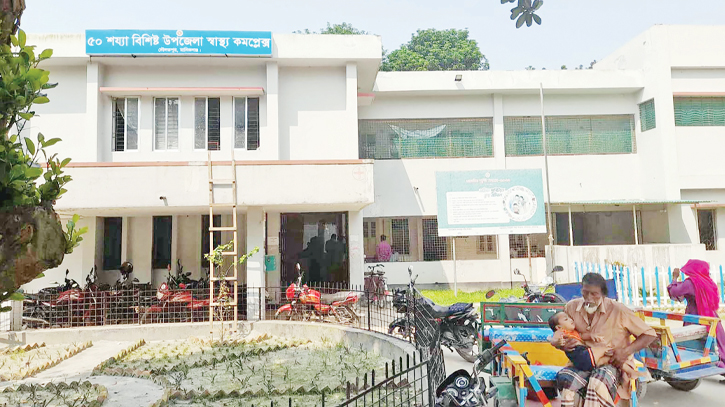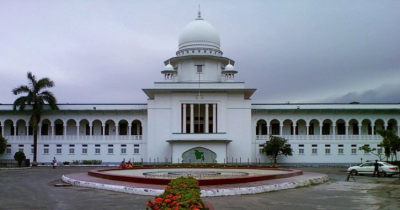
Photo: Messenger
The residents of Daulatpur Upazila in Manikganj find themselves in a dire healthcare difficulty due to the relentless erosion of the Jamuna River. This erosion has not only led to the loss of homes and land but has also cut off access to essential medical services, leaving the populace in a state of desperation.
Situated amidst the unforgiving grasp of the Jamuna River, three unions in the upazila—Bachamara, Baghutia, and Charkatari—are now inaccessible, exacerbating the already challenging situation. The only lifeline, the Daulatpur Upazila Health Complex, presents a grim picture. Despite housing a surgery room equipped with modern medical amenities, the absence of an anesthesiologist has rendered it non-operational, leaving emergency patients in excruciating pain and pregnant women in peril.
Shockingly, only 16 out of 30 doctors are presently serving in the health complex, with critical vacancies persisting for a prolonged period. The absence of vital medical personnel such as Junior Consultants in various specialties and assistant surgeons further compounds the issue. As a consequence, patients are compelled to seek treatment at private clinics, often enduring arduous journeys spanning 35 kilometers to reach the district hospital.
Swapan Mia's harrowing experience exemplifies the plight of many. When his wife required urgent medical attention during childbirth, they rushed to the upazila health complex, only to discover the surgical services were unavailable. Forced to seek help elsewhere, they incurred additional expenses and logistical challenges, reflecting the dire state of healthcare in the region.
Despite superficial improvements such as an increase in bed capacity—from 31 to 50 beds—since its inception in 1983, the health complex has failed to bolster its medical services. With a population exceeding 400,000, the alarming ratio of one doctor per 27,744 people underscores the magnitude of the crisis.
Efforts to address the situation have been marred by bureaucratic inertia and misplaced priorities. While the District Health Rights Forum and local representatives advocate for staffing the health complex adequately, tangible progress remains elusive. The lack of accountability and oversight has allowed critical positions to remain unfilled, depriving residents of essential healthcare services.
The apathy towards healthcare infrastructure extends beyond staffing issues. Outdated medical equipment, such as the ancient analog X-ray machine, further compromises the quality of care provided. The dire need for digital upgrades to facilitate accurate diagnostics remains unaddressed, perpetuating the cycle of inadequate healthcare delivery.
In response to mounting pressure, promises of resolution emerge from governmental quarters, yet concrete actions remain scarce. The Member of Parliament for Manikganj-1 Constituency pledges to champion the cause of Daulatpur residents, vowing to expedite discussions with the health ministry. However, for the beleaguered residents of Daulatpur Upazila, these assurances offer little solace amidst their daily struggle for survival.
The healthcare crisis in Daulatpur Upazila serves as a sobering reminder of the systemic failures that continue to plague rural communities. As the residents grapple with the harsh realities of their circumstances, urgent and decisive action is imperative to alleviate their suffering and restore their fundamental right to healthcare. Anything short of this constitutes a grave injustice to the people who find themselves at the mercy of indifferent bureaucratic machinery.
Messenger/Fardin








